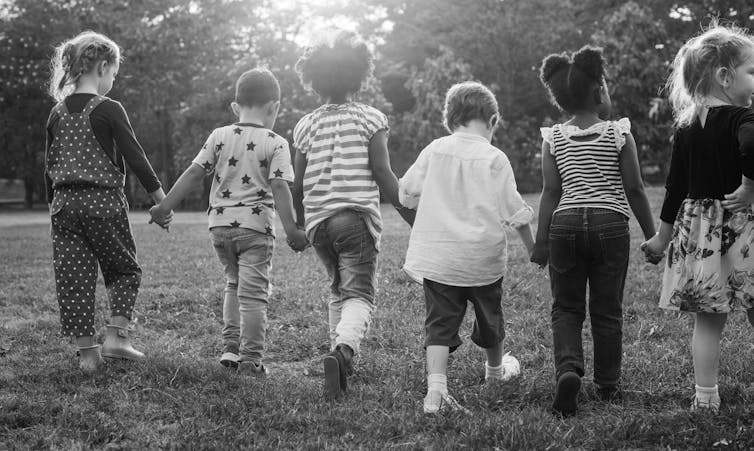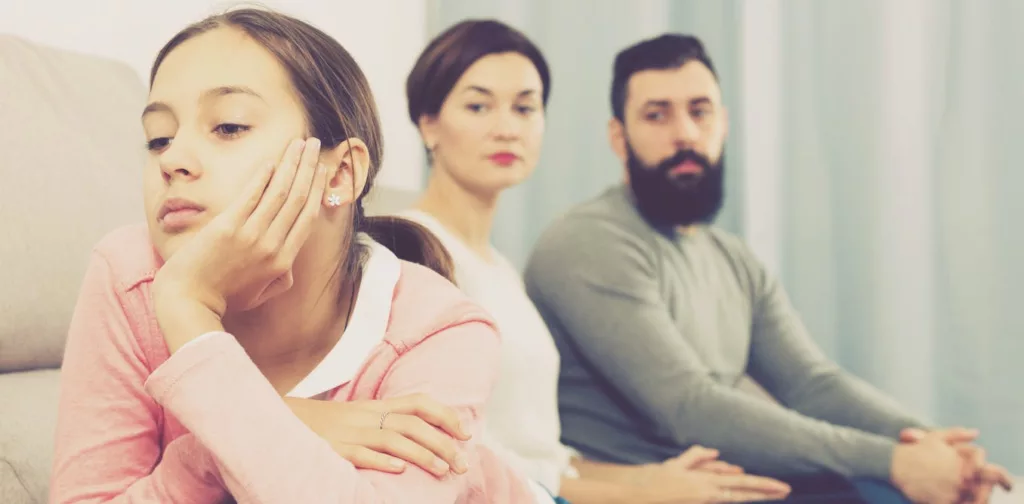[ad_1]
Some functions are only deemed legal if they are committed by someone aged below 18. This doesn’t just incorporate things this sort of as consuming liquor. In some US states, for example, it is illegal for youngsters to run absent from property or even to continuously disobey parental authority.
This conduct is referred to as incorrigibility. If a baby is resolved to be incorrigible by a court, the sanctions they can obtain consist of detention in a juvenile facility.
In lots of nations around the world where by there is legal recourse for grown ups against violence by other grownups, we obtain a troublesome absence of these kinds of defense for young children. In in excess of 130 countries in the environment, children absence complete security from corporal punishment. In England, children can lawfully be smacked by dad and mom if the smack can be regarded as “sensible punishment”.
This variety of unequal procedure is an case in point of childism: prejudice and discrimination towards little ones.
Defining the dilemma
The strategy of childism was made use of by psychiatrists Chester Pierce and Gail Allen as extended back as 1975, describing the common oppression made by anti-child attitudes and tactics. They argued that childism is “the automatic assumption of superiority of any adult about any child”.
In 2012, the term was even more popularised by psychoanalyst Elisabeth Youthful-Bruehl’s reserve Childism: confronting prejudice versus little ones. Younger-Bruel argued that childism ought to be viewed as as a prejudice together with other prejudices this kind of as racism, sexism and homophobia.
Tips about women’s inferiority to adult men or assumptions about race feed into strategies about children’s inferiority to adults. These are prejudices about who has and who lacks rationality, logic and authority. This prejudice stands in the way of small children currently being read and taken critically.

Rawpixel.com/Shutterstock
A youngster can be discriminated versus on multiple grounds. The age, race, gender, course, incapacity, language and sexual orientation of a boy or girl can hinder their rights in college or obtain to societal institutions.
Anticipations that the legislation must uphold some type of justice, that people should really be dealt with equivalent in the software of laws, and that children as a vulnerable team ought to be adequately protected by the law, can clash with the existence of childism.
Childism in regulation
Children’s rights are formulated in intercontinental regulation. The most usually regarded is the United Nations conference on the legal rights of the little one (CRC) proven in 1989. But when the convention states that the legal rights it lays out must apply to any youngster devoid of discrimination on the basis of factors these types of as race and sex, it does not outline or deal with discrimination from kids.
This stands in stark distinction to other main conventions on human legal rights. The conference on the elimination of all forms of racial discrimination, as the title indicates, deal with racial discrimination, and the convention on the elimination of all kinds of discrimination in opposition to girls sexist discrimination. But age-primarily based discrimination versus children has been neglected.
The conference on the rights of the boy or girl states that the greatest pursuits of the youngster really should be a principal thought in lawful and administrative proceedings. But what is in the very best pursuits of the child tends to be defined by worried adults and their pursuits.
Study additional:
Calling youngsters ‘vectors’ throughout COVID-19 is turning into discrimination
In custody conditions, for occasion, the rights of the involved older people are usually prioritised. Research in Sweden discovered that children’s proper to welfare assistance tends to be determined primarily via the statements of grown ups in the loved ones.
The convention on the rights of the kid also includes the instruction that the “evolving capacities of the little one” really should be taken into consideration when judging matters relating to small children. This may well silence children’s voices on their very own rights, as a child may be deemed too immature or not all set to have a say in their lifestyle.
However, not discriminating towards kids does not suggest dealing with them the exact same as grownups. This sort of official equality can be unfair to little ones, as their particular conditions will be diverse to people of an adult. What it does suggest is – for instance – guaranteeing that a child has a ideal to be heard on difficulties that have an affect on them, and that their views are not dismissed only because they are the sights of a kid.
Discrimination towards kids requires to be resolved from an intersectional perspective. This signifies having into account how a baby may well at the same time practical experience overlapping discrimination centered on their age and other variables such as race and gender. Governments should really recognise that the legal rights of the little one rest at the centre of human requirements.
[ad_2]
Resource hyperlink
Meet Our Successful Graduates: Learn how our courses have propelled graduates into rewarding
careers. Explore their success stories here!
Discover More About Your Future: Interested in advancing your teaching career? Explore our
IPGCE, MA, and QTS courses today!

Explore Our Courses: Ready to take the next
step in your education journey? View our
comprehensive course offerings now!

